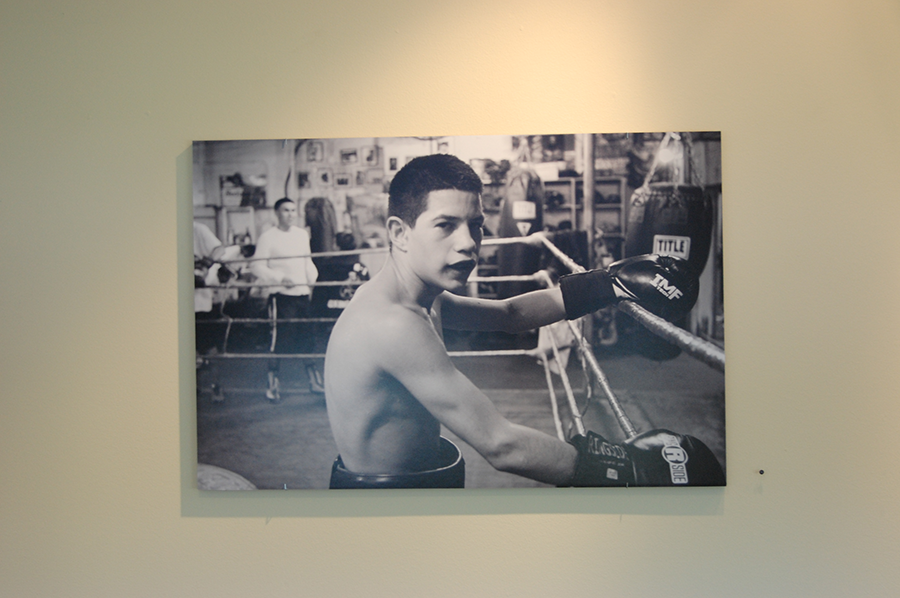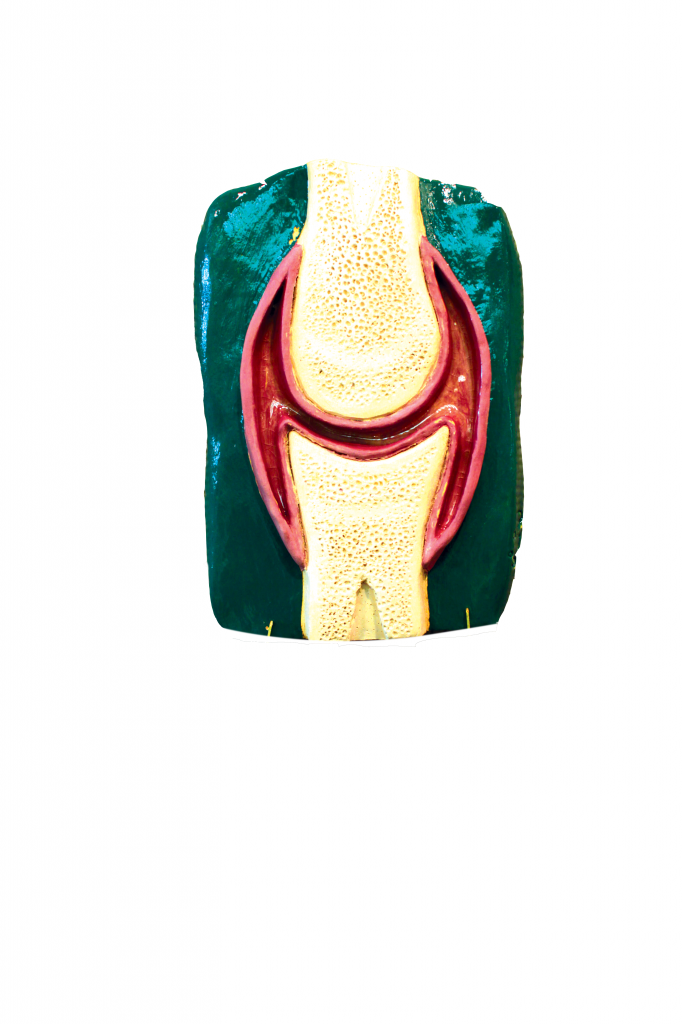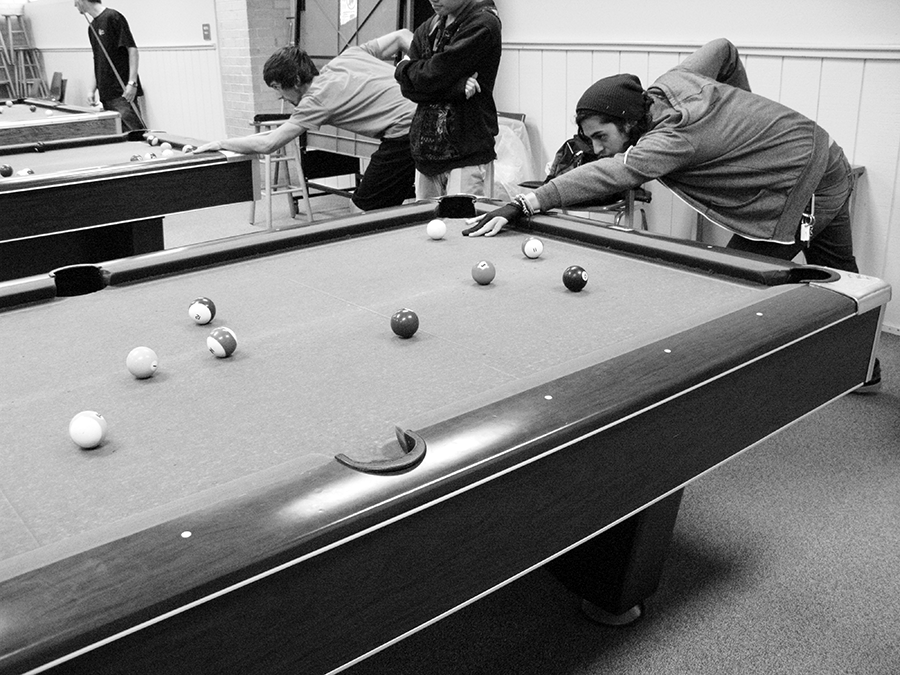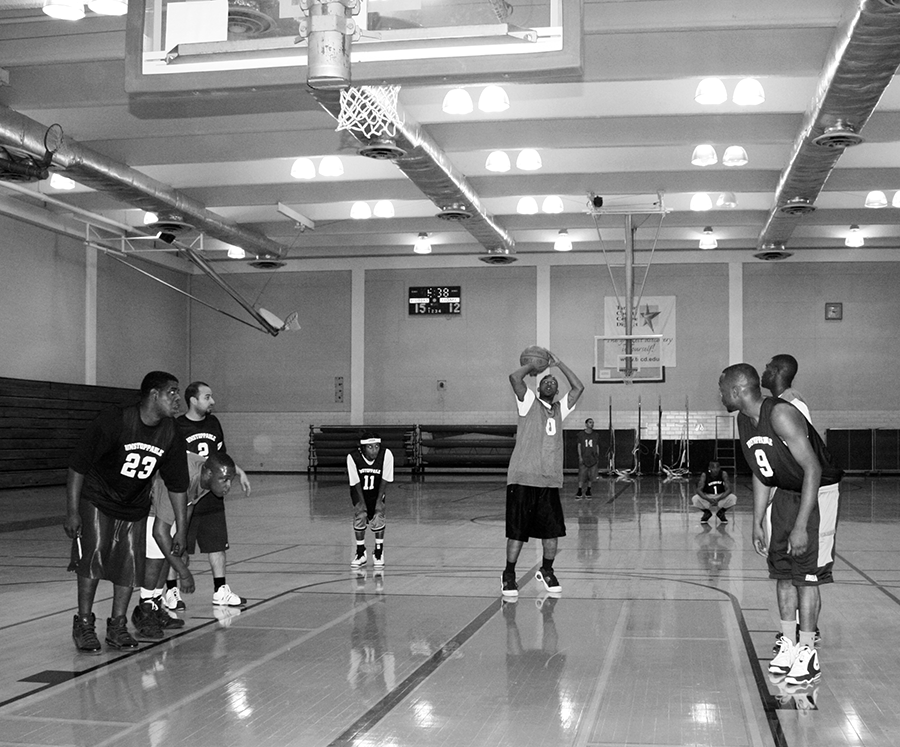By Bethany Peterson/nw news editor

Martina Treviño/The Collegian
Students move through the halls and study in the library just like at any other college. But unlike other colleges, the number of men far outweigh the women. This happens all the time at aviation mechanics schools.
In 2007, only 2 percent of airplane mechanics were female, according to an FAA report. That’s only a slight increase from 1.3 percent in 1997.
And there aren’t many female mechanics in training either. TCC’s aviation mechanics technology department currently has 27 female students, but that is only 8.7 percent of the 309 total students.
Compared to other aviation mechanics schools across the country and around the world, that is a high percentage.
Aviation mechanics student Allison Hoyt said she was one of two girls in her class, but when the class split into two smaller ones, they were separated.
“I’m the only girl in all my classes,” she said. “In the class coming in this semester, there are no girls.”
Despite the numbers, women have reason to enter the aviation mechanics world.
“I’m actually going to be a missionary pilot,” Hoyt said. “If you’re in the middle of a jungle and your plane breaks down, you have to be able to fix it.”
Student Amy Lamere said she picked mechanics because of her history with cars.
“I worked with my dad on my car, his car, my brother’s car,” she said.
Lamere said she switched to airplanes because they offer more opportunity, better jobs and better pay.
“It’s not an expensive opportunity, and there are so many opportunities after only two years,” she said.
And there are opportunities. According to avjobs.com, an average of 10,000 jobs will open in the airplane maintenance industry each year, and numbers should increase to 40,000 over the next couple of years as the airlines continue to recover. Those jobs are open to women as well as men.
Hoyt believes women might have an edge in the hiring process.
“It might be easier for a woman because it makes the company’s diversity profile look better,” she said.
Pamela Lindsey, who works for TCC maintaining the planes students work on, said one of the biggest barriers in the workplace is the stereotypes that work against them. But she didn’t feel these were permanent roadblocks.
“When they [female mechanics] present themselves with what they know, the fact that they are women falls away,” she said.
After a few days, they are accepted as part of the team, she said.
This acceptance extends to the classrooms at TCC too. Hoyt, who plans to graduate in December, said the men in her class have treated her like one of the gang.
“It’s really easy for them to forget I’m in the room,” Hoyt said. “No one treats me like I’m incapable.”
Lamere said the 20-plus guys in her class were a big help to her during her first and hardest semester. She walked in the first day of class an unconfident 18-year-old, she said.
“They tell me, ‘You know you’re smart, you’re this, you’re that, you got this,’” she said.
But the girls get their share of the jokes too.
“They give me shit, but they like me,” Lamere said. “It’s just something they do to each other.”
Hoyt took a summer class on how to cover the frame of older airplanes with the canvas shell.
“There was a lot of ironing and sewing in that class,” Hoyt said. “There were a lot of jokes that I should be a natural at it.”
One of the biggest reasons more women don’t enter the mechanics field is that most women don’t know it is an option for them, Hoyt said.
Several organizations aim to increase the number of women in all fields of aviation.
Women in Aviation International and the Association for Women in Aviation Maintenance offer scholarships to students and professionals for continued training. Even web-based mentor programs exist, Lindsey said, and the organizations put on seminars to reach new audiences.
“It’s a social perception thing,” Hoyt said. “[Mostly male is] the way it started out. It’s difficult to change.”
And things don’t always go as hoped.
Hoyt has heard of a fully-qualified female mechanic who was hired by a large aviation business only to be put behind a desk doing paperwork and talking to customers.
But Lamere is optimistic about her chances.
“I’m excited about going through school and seeing what comes my way,” she said.




























